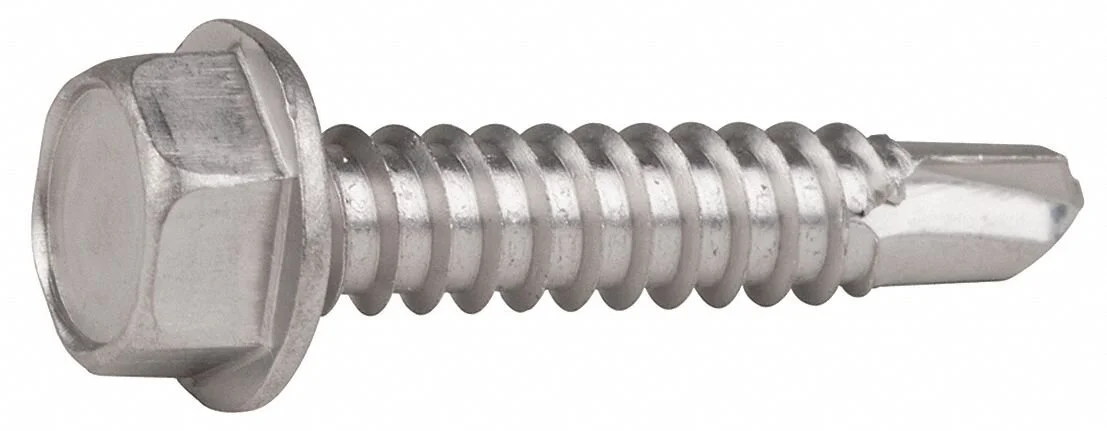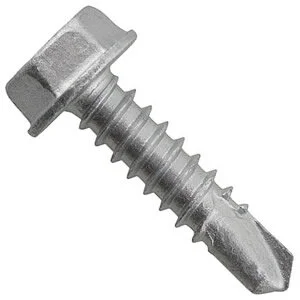Common Materials Used in Solar Fasteners
Though a particular solar application may call for a specific, less-common material, the majority of solar installation hardware is made up of one or a combination of four standard materials: 18/8 stainless steel, 316 grade stainless steel, 410 grade stainless steel, or Grade 5 steel.
Stainless Steel 18/8
The most widely used and flexible austenitic form of stainless steel, 18/8 stainless steel is 304 grade stainless steel. The numbers 18/8 are a representation of what makes up the material; 18% chromium and 8% nickel. This chemical makeup creates a material that is very resistant to both oxidation and corrosion. 18/8 stainless steel is common for sheet metal screws and most nuts used in solar installations.
Stainless Steel 316
Known for its 2-3% molybdenum content, 316 grade stainless steel is an austenitic form of stainless steel. The additional molybdenum creates a metal that is more resistant to pitting and corrosion, and it also improves resistance to failure caused by very high temperatures. Particularly effective when used in acidic environments, corrosion that is caused by acetic, hydrochloric and other forms of acids can be prevented by using fasteners made from 316 stainless, but the metal is softer than 18/8 stainless or 410 stainless.
Stainless Steel 410
Containing 11.5% chromium, 410 grade stainless steel is general-purpose martensitic stainless, providing reliable corrosion resistance in most cases. Additionally, the corrosion resistance of 410 grade stainless can be further enhanced by processes like tempering, hardening and polishing. Fasteners made from 410 stainless are generally used for applications involving the need for mild corrosion resistance, high heat resistance and high strength performance. Self-drilling screws used in solar applications are commonly made from 410 grade stainless steel.
Grade 5 Steel
Grade 5 is a zinc-plated, medium carbon alloy steel that has been heat treated to increase its hardness. Bolts made from Grade 5 steel are identified by three evenly spaced hash marks on the bolt’s head, and sometimes a manufacturers mark or logo may also be included. During the manufacturing of Grade 5 cap screws, the screws are heated to strengthen the outside, creating a stronger outside than inside of the fastener. When Grade 5 steel is used in a solar application, it is typically coated in a very corrosion resistant finish.
Bi-Metal Fasteners
A bi-metal screw, as the name suggests, is a. screw comprised of two metal types. The point is typically made from a high carbon steel that has been heat treated, giving it the ability to self-drill. The body is then made from stainless steel so as to provide the resistance to corrosion. One example of a highly popular bi-metal fastener is the Elco Bi-Flex structural screw, which are self-drilling, self-tapping screws that provide the efficiency of drill screws combined with the corrosion resistance of 300 series stainless steel. Bi-Flex screws can be used in both steel and aluminum racking.
If you want to know more about which material the fasteners for your particular solar assembly should be made of, contact Mudge Fasteners for assistance.





